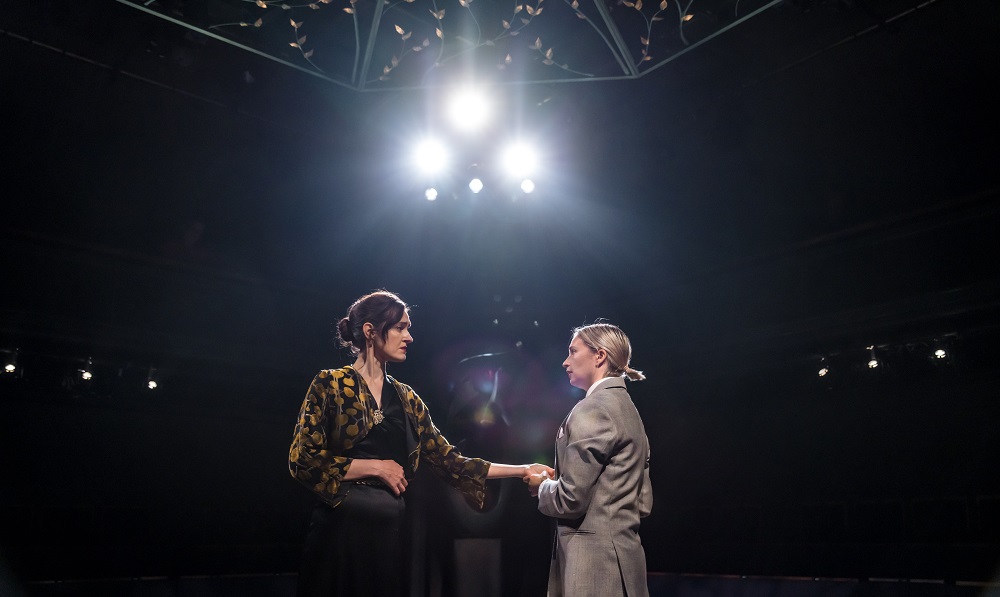
Review: The False Servant, Orange Tree Theatre
Review: The False Servant, Orange Tree Theatre
“It is funny. But it could have been much more than this”
If the questions of gender and sex seem overly modern, you might be surprised that they are in fact, not an invention of the past two decades. Explored, among many others, by the 18th-century French playwright Pierre de Marivaux in his comedy The False Servant, they return to the London stage in an amusing, modernised translation by Martin Crimp and a somewhat confused adaptation by Paul Miller.
The first scene feels especially out of the blue. Neither does it set a tone for the play, nor explains anything the audience couldn’t guess themselves. Will Brown’s scoundrelly clever, cocksure Trivelin bursts onto the stage describing to Uzair Bhatti’s Frontin why he is now penniless (in essence, booze and ladies). The dialogue is brilliant, the delivery – not so much. When the audience is confused enough, the real plot begins: we meet Chevalier (Lizzy Watts) who, dressing up as a man, aims to break the engagement between Lelio and the Countess for reasons not overly clear and not overly important. Easy enough it would seem, except it’s not just feelings that bound Lelio and Countess together. Thus, the race of sexual innuendos and gender confusion ensues to many a laugh from the audience.
I used the word “race” with all its intended meaning and purpose. The actors race on the OT’s in-the-round stage to balance the audience’s side they are currently directing their knowing winks and asides to, the dialogues race and jump from one comedic gag to another merely gliding over the potential hidden in Crimp’s crisp, dynamic translation, and the plot races to its rather befuddling conclusion. Even the costumes race, presumably in search of any nexus between them.
Lizzy Watts is a jaunty Chevalier who clearly enjoys herself weaving this weird conspiracy to other’s rightly deserved demise but her masculinity is pretty much confined to sticking hands in her pockets and poking fun at Lelio and Trivelin’s “traditionally masculine” chutzpah. Moore-Cook is amusingly over the top. Pryce makes a lovely if slightly jejune Countess.
The play itself is fascinated with the dynamics of gender and between genders, sexual power, misogyny and stereotypes. “I see blood on a regular basis” Chevalier announces in a brash innuendo response to being challenged for a duel. And where it lets these notions resound in all their fascinating complexities, it works really well leaving us not quite sure who is the protagonist if there even is one. Unfortunately, it usually doesn’t. Dialogues feel rushed and there is a questionable amount of stage time being spent on the most farcical sexual encounters (real and imagined) rather than those where characters’ motivations and feelings are nuanced and unclear, and where the traditional gender dynamics are called into question. And honestly, it is funny. But it could have been much more than this.
Orange Tree Theatre, until 23 July
Image: Phoebe Pryce and Lizzy Watts The False Servant, credit: The Other Richard







